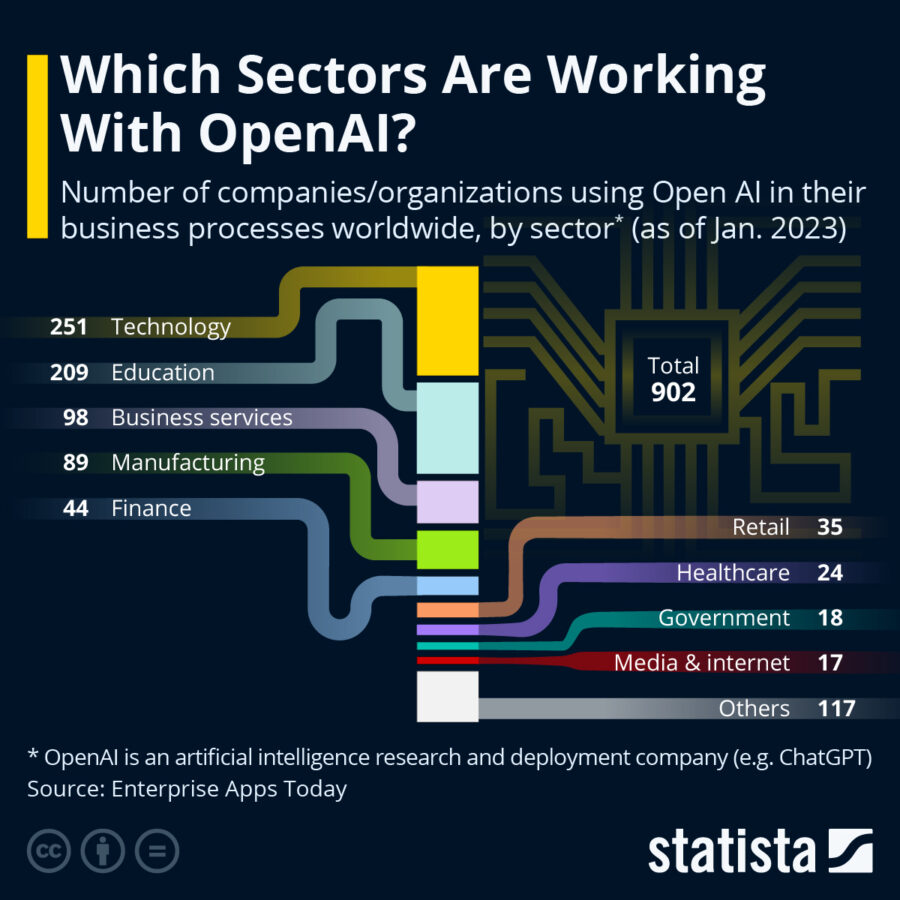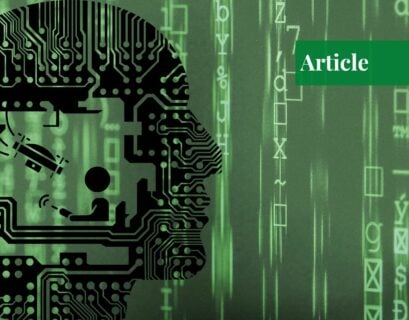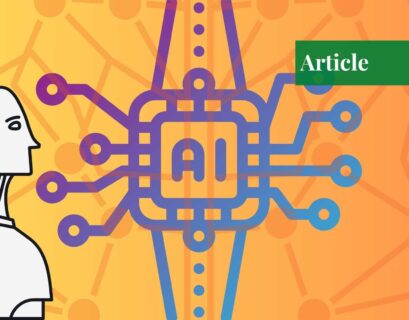An AI chatbot that was launched in November 2022.
Introduction
As the field of artificial intelligence continues to evolve at a rapid pace, one of the most promising recent developments has been the rise of advanced language models. At its core, ChatGPT is a sophisticated AI system designed to understand and generate natural language text in a way that closely resembles human communication.
Created by OpenAI, one of the leading research organizations in the field of AI, ChatGPT is an impressive feat of engineering, with 175 billion parameters that allow it to process and learn from massive amounts of text data. This includes everything from understanding the meaning of words and sentences to generating coherent and grammatically correct responses to questions and prompts.
What truly sets ChatGPT apart from other language models is its ability to generate realistic and coherent text. Using a technique known as generative modeling, it can produce new text that closely matches the style and tone of the input text it was trained on. This has led to some truly remarkable demonstrations of ChatGPT’s abilities, including the creation of entirely new pieces of writing that are difficult to distinguish from human-written content.
Potential Applications
ChatGPT has proven to be a revolutionary tool in a variety of industries, with its potential applications being vast and varied. From customer service to healthcare, education, and beyond, it has demonstrated the power to transform the way we interact with technology, providing more efficient and effective communication than ever before.
In customer service, ChatGPT has already been implemented with great success. Companies have utilized ChatGPT as a way to provide 24/7 support to their customers, without the need for human operators. It can be programmed to understand and respond to customer inquiries in real time, providing a seamless and personalized experience that can help to increase customer satisfaction and loyalty.
For example, major companies like Apple and Amazon have already implemented ChatGPT in their customer service operations, and have reported significant improvements in customer satisfaction and operational efficiency as a result.

In healthcare, ChatGPT is also poised to make a significant impact. With the rise of telemedicine, it can provide a valuable tool for doctors and patients alike. ChatGPT can help patients to answer common health questions, triage symptoms, and even schedule appointments with healthcare professionals. ChatGPT can also be used to provide patients with personalized health advice based on their medical history and symptoms, all in real time.
In education, ChatGPT has already been used to provide personalized tutoring and study help to students. ChatGPT can be programmed to understand the unique learning needs of each student, and provide tailored support and feedback to help them achieve their academic goals. This could be especially useful for students who struggle with traditional teaching methods, or who need additional support in specific subjects.
For example, the OpenAI language model has already been integrated into educational platforms such as Chegg and Edtech, providing personalized study help to millions of students across the globe. Beyond these industries, it has also been used for a variety of other applications, such as language translation, content creation, and even in the development of new products and services.
In all of these applications, ChatGPT has the potential to provide significant benefits, including improved efficiency, cost savings, and a more personalized and effective user experience. By providing real-time, context-specific communication and support, ChatGPT can help to improve customer satisfaction, increase operational efficiency, and even save lives in the case of healthcare applications.
As technology continues to evolve and improve, we can expect to see even more innovative applications for ChatGPT, with the potential to transform the way we interact with technology and each other.
Ethical Concerns
While the potential applications for ChatGPT are vast and varied, the technology also raises a number of important ethical concerns that must be carefully considered. As ChatGPT becomes more advanced and widely used, it has the potential to impact a range of areas, including privacy, bias, and even the nature of human communication.
One of the most pressing ethical concerns related to ChatGPT is the issue of privacy. ChatGPT relies on large amounts of data to function, including personal information such as names, contact information, and potentially sensitive health and financial data. This raises concerns about how this data is being collected, stored, and used, and whether individuals have adequate control over their own data.
There is also the issue of bias, and because the technology is trained on large amounts of data, it has the potential to perpetuate and even amplify biases and inequalities that already exist in society. For example, if ChatGPT is trained on data that is biased against certain groups, it may produce responses that reflect and reinforce these biases. This can have serious consequences in areas such as hiring, lending, and criminal justice, where biased algorithms could perpetuate systemic discrimination.
Another ethical concern is the potential impact on human communication. As it becomes more advanced, there is a risk that it could replace or reduce human communication, leading to a loss of interpersonal connections and even a decline in empathy and emotional intelligence. This could have significant implications for society as a whole, and could ultimately erode our ability to connect with one another on a meaningful level.
Finally, there is the issue of accountability and responsibility. As ChatGPT becomes more widely used, there is a risk that it could be used to spread disinformation, manipulate public opinion, or even facilitate criminal activity. This raises important questions about who is responsible for ensuring that ChatGPT is used in a responsible and ethical manner, and what steps can be taken to prevent and address potential harm.
To address these ethical concerns, it will be important for developers, policymakers, and other stakeholders to work together to establish clear guidelines and best practices for the use of ChatGPT. This could include measures such as transparency and accountability in data collection and use, regular auditing and testing of algorithms to identify and address bias, and careful consideration of the potential impact on human communication and empathy.
Ultimately, the ethical concerns highlight the need for a thoughtful and proactive approach to the development and deployment of this technology. By prioritizing values such as privacy, fairness, and empathy, we can help to ensure that ChatGPT is used in a way that benefits society as a whole, rather than perpetuating or exacerbating existing inequalities and harms.
As we continue to explore the potential of this technology, it will be essential to remain vigilant and engaged, and to work together to address the ethical challenges that it presents.
Future Uses
As ChatGPT continues to evolve and advance, the possibilities for natural language processing and AI are becoming increasingly vast and varied. With emerging technologies and new developments on the horizon, it is clear that the future of AI is one of continued growth, innovation, and potential. One area where ChatGPT is likely to have a significant impact in the coming years is in the realm of virtual assistants and chatbots.
As more and more businesses and organizations adopt these technologies to improve customer service and automate routine tasks, the demand for advanced natural language processing capabilities will only continue to grow. With ChatGPT, these virtual assistants and chatbots will be able to provide more personalized, intuitive, and accurate responses, leading to improved customer satisfaction and overall efficiency.
The future of ChatGPT is likely to be shaped by a range of emerging technologies and advancements in natural language processing. For example, researchers are currently exploring new approaches to training language models that could lead to even more powerful and versatile AI. Some experts are even experimenting with approaches that mimic the way the human brain processes language, with the goal of creating AI that is truly indistinguishable from human communication.
As we look to the future of ChatGPT and natural language processing, it is clear that there are both tremendous opportunities and significant challenges ahead. By working together to address these challenges and harness the power of AI for the greater good, we can unlock the full potential of this exciting and rapidly evolving field.
If you want to submit your articles and/or research papers, please check the Submissions page.
The views and opinions expressed in this article/paper are ChatGPT’s own and do not necessarily reflect the editorial position of Paradigm Shift.


















